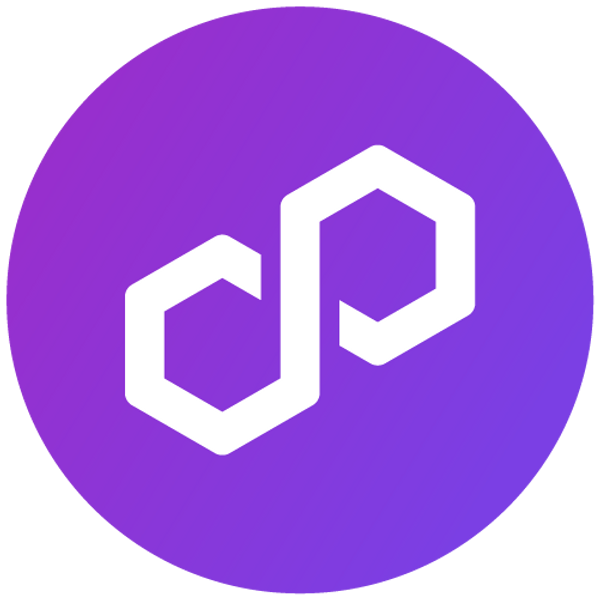Understanding the Polygon Blockchain

As blockchain technology evolves, scalability, interoperability, and user-friendly environments have become critical for widespread adoption. Polygon, formerly known as Matic Network, has emerged as a prominent player addressing these challenges. This article delves into what Polygon is, how it works, and its role in advancing blockchain technology.
What is Polygon?
Polygon is a Layer 2 scaling solution for Ethereum, designed to provide faster and cheaper transactions while maintaining the security and decentralization of the Ethereum blockchain. It is often referred to as “Ethereum’s Internet of Blockchains” because it enables developers to create interconnected, scalable, and secure blockchain networks.
Key Features of Polygon
- Scalability: Polygon significantly enhances transaction throughput by offloading computational tasks from Ethereum’s mainnet, ensuring faster transaction processing.
- Low Transaction Fees: By leveraging Layer 2 technology, Polygon reduces the gas fees associated with Ethereum transactions, making it accessible for everyday use.
- Interoperability: Polygon supports communication between Ethereum and other blockchains, fostering a multi-chain ecosystem.
- Developer-Friendly Environment: With comprehensive documentation, tools, and support, Polygon makes it easy for developers to create decentralized applications (dApps).
- Security: Polygon uses Ethereum’s robust security model, ensuring a reliable environment for users and developers.
How Does Polygon Work?
Polygon employs a modular framework that supports various scaling technologies, including:
- Plasma Chains: Plasma is a framework for building scalable dApps by offloading transactions to side chains and periodically anchoring them to the Ethereum mainnet for security.
- Proof-of-Stake (PoS) Chain: Polygon’s PoS chain operates as a commit chain that batches multiple transactions and secures them using a Proof-of-Stake consensus mechanism.
- ZK-Rollups: These zero-knowledge rollups bundle transactions into a single batch for validation, increasing efficiency while maintaining privacy.
- Optimistic Rollups: Optimistic Rollups assume transactions are valid by default and verify them only when challenged, enhancing speed and reducing costs.
Why is Polygon Important?
- Enhancing Ethereum’s Capabilities: Ethereum’s scalability issues and high transaction fees have hindered its growth. Polygon alleviates these issues, enabling mass adoption.
- Accelerating dApp Development: With lower costs and faster processing times, developers can create and deploy dApps more efficiently on Polygon.
- Multi-Chain Future: By supporting the development of interconnected blockchains, Polygon promotes a multi-chain ecosystem where blockchains can seamlessly communicate.
- Environmentally Friendly: Polygon’s PoS consensus mechanism is more energy-efficient compared to Ethereum’s earlier Proof-of-Work model, aligning with sustainability goals.
Popular Use Cases of Polygon
- DeFi Applications: Decentralized finance platforms like Aave and SushiSwap leverage Polygon for fast and cost-effective transactions.
- NFT Marketplaces: Polygon hosts NFT platforms such as OpenSea and Decentraland, where users can mint, buy, and sell NFTs at lower costs.
- Gaming: Blockchain-based games like Decentral Games and CryptoBlades utilize Polygon for real-time, scalable gameplay experiences.
- Enterprise Solutions: Companies use Polygon for supply chain management, data verification, and other blockchain-based enterprise applications.
Polygon vs. Ethereum
| Feature | Ethereum | Polygon |
|---|---|---|
| Transaction Speed | 15-30 transactions per second | Up to 65,000 transactions per second |
| Gas Fees | High | Low |
| Consensus Mechanism | Proof of Stake (Ethereum 2.0) | Proof of Stake (Polygon PoS) |
| Scalability | Limited | Highly Scalable |
The Future of Polygon
Polygon has positioned itself as a critical infrastructure layer in the blockchain ecosystem. With ongoing developments like Polygon zkEVM (a zero-knowledge Ethereum Virtual Machine), it aims to provide even greater scalability and compatibility with Ethereum.
Additionally, Polygon’s commitment to fostering a multi-chain environment aligns with the broader industry trend toward interoperability, making it a vital component of the Web3 ecosystem.




Responses